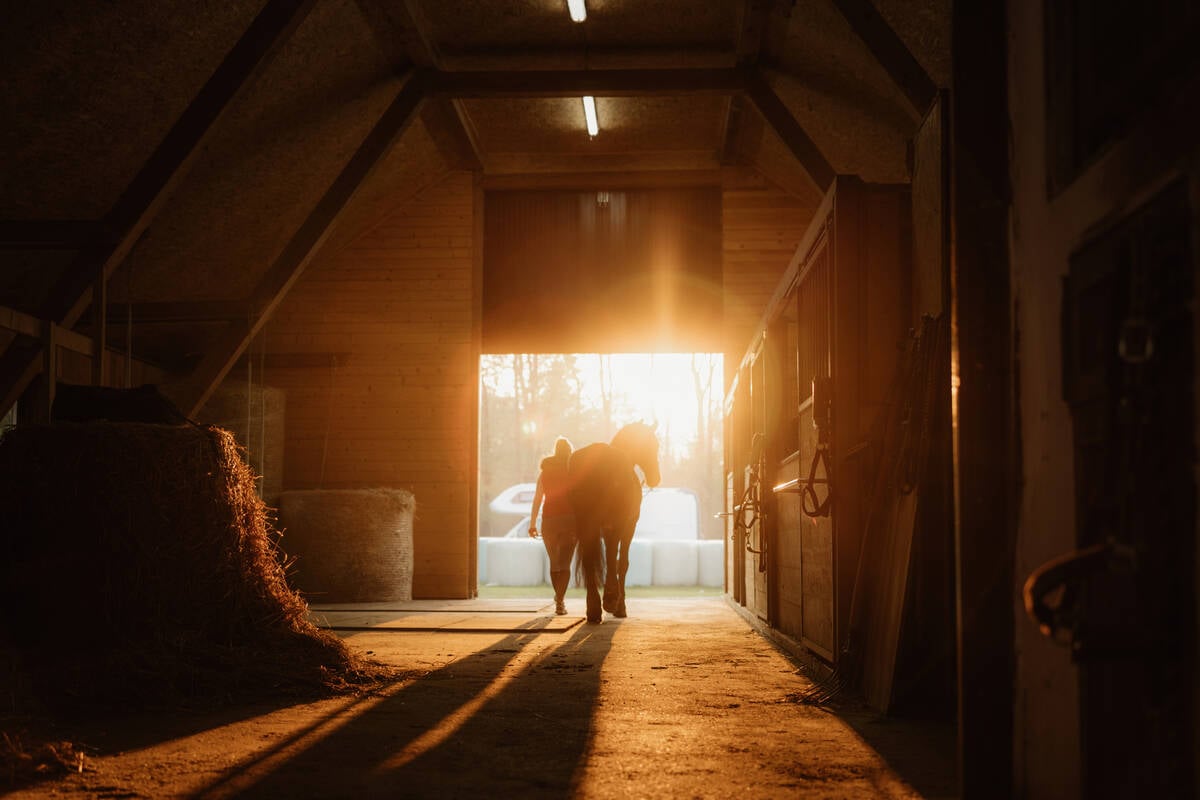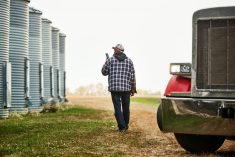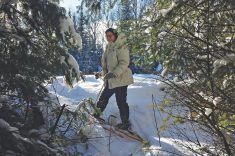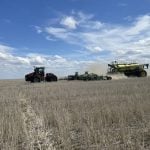Gender-based and domestic violence survivors from rural and remote communities often require unique care due to the needs of animals and livestock.
“One service provider even talked about how a survivor left everything behind except for her horse,” said researcher Sue O’Neill.
“She had to bring her horse with her.”
Read Also
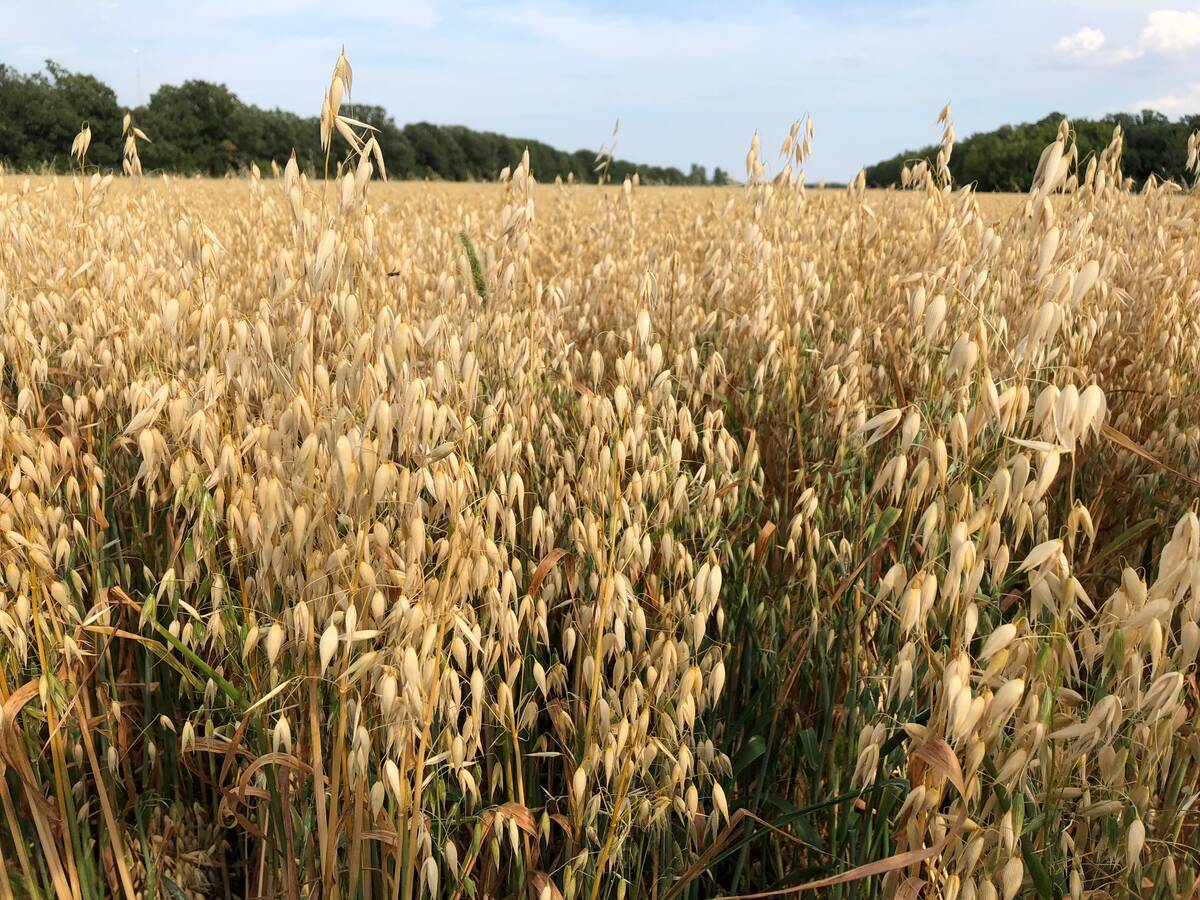
Big oat crop in 2025/26 pointing to less acres next year
Oat acres in Canada are likely to recede this spring with cash prices to remain low, said Scott Shiels, grain procurement manager for Grain Millers Canada in Yorkton, Sask.
Speakers at the Humane Canada One Health One Welfare Conference in Ottawa explained the intersections between animal health and gender-based violence. This included lack of supports in cases involving livestock and how the welfare of animals can be used against victims.
O’Neill, a PhD student, has researched the relationship between gender-based violence and farmed animals. She said she “kept hearing from survivors and service providers that there were gaps for survivors who had larger companion or farming or working animals.”
The bond between survivor and animal
She found there are often strong connections between survivors and animals.
“Survivors and service providers really emphasized that there was an emotional impact of the connection survivors had to these types of animals,” O’Neill said in breakout session at the conference.
That bond was often offered a source of happiness and contrast to the abuse they were experiencing.
The species of the animal didn’t always matter. O’Neill told the story of one survivor who spoke about a cow the same way she would expect someone to speak about a dog.
Another said she would often talk to her goats who would bleat back at her. This was more response than she got from her partner, who would stonewall her.
“Multiple survivors really highlighted that their bond with these types of animals actually offers emotional support and described it as also offering radical acceptance,” O’Neill said.
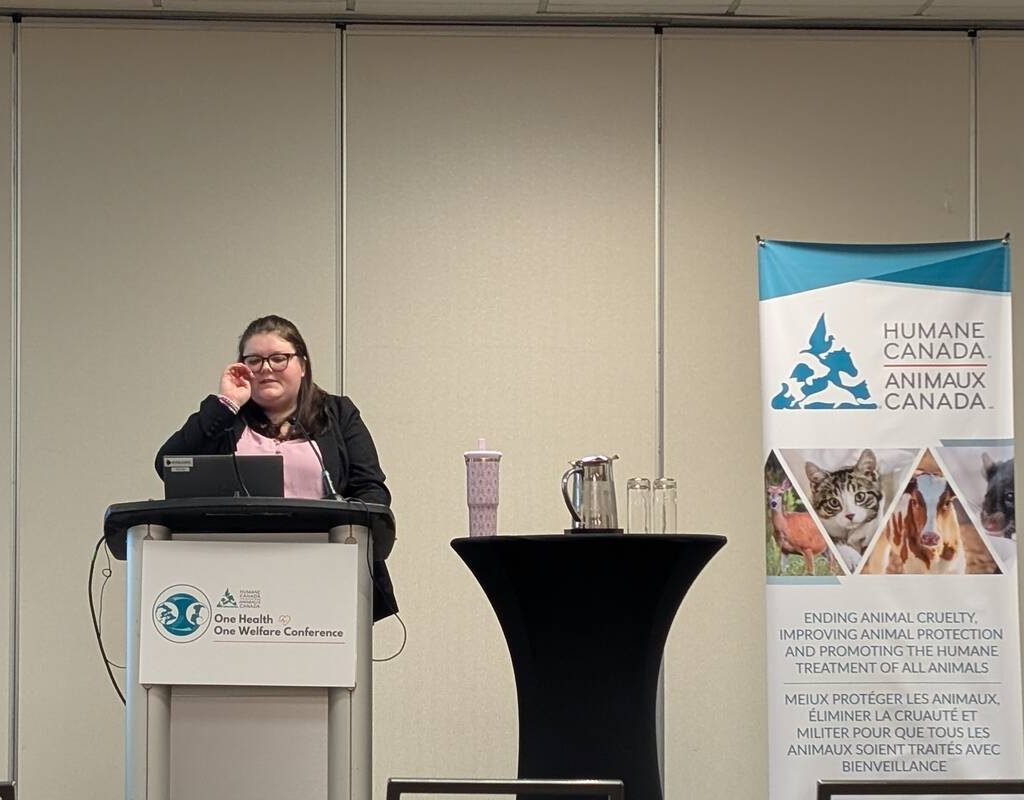
Animals used against victims
Farm animals can also provide security. One survivor said she felt safer in a paddock with her horse than in her home. Another said her cow was her inspiration to leave, since she felt she must build a better life for her and the cow.
However, the security and comfort the animals provide can be used against survivors. O’Neill said abusers will sometimes threaten harm or financial abuse such as selling animals below their value to keep their victims in place.
The animals might also be integral to the survivor’s income and livelihood. If they leave the abusive relationship, their financial security might be impacts — particularly when the abuser maintained access to the animals.
This can also become a concern when the welfare of a farm is at stake if victims choose to leave.
Animal abuse and intimate partner violence are often inextricable linked said Humane Canada justice and legislative affairs manager Kerri Thompson in a panel discussion.
“Violence does not happen in a vacuum,” Thompson said. “Hurt people hurt people, and they will also hurt animals.”
Few supports
For survivors, supports can be few and far between. O’Neill said there are select programs that offer to shelter animals, but they are rare and often nonexistent in rural or remote areas.
This is especially true of larger farm animals which require greater care, including trailering, handling or milking.
In some cases, neighbours experienced with farm animals may offer care — though this might require the sympathetic neighbor to go to the home of the abuser.
“All of this leads to survivors being faced with a really impossible choice,” O’Neill said. “If survivors have to sell or give up their animals, they may never know what happens to these animals. It can be very traumatic.”
There can also be concerns around privacy in rural communities where information travels quickly among neighbours.
Though the issue is complex, O’Neill pointed to several measures which could represent the beginning of meaningful change.
One would be to encourage gender-based violence shelters to adopt co-sheltering or community programs that offer off-site animal safekeeping, boarding or fostering. Though these programs are often focused on smaller pets, she said they could open the door to addressing bigger problems with more sustainable change.
A one health approach could be part of the solution said University of Windsor professor Amy Fitzgerald.
Fitzgerald’s research examines links between animal studies and criminology.
“We think that achieving gender justice is going to require ecological and species justice,” Fitzgerald said. “One health, one welfare helps to highlight these important connections.”




